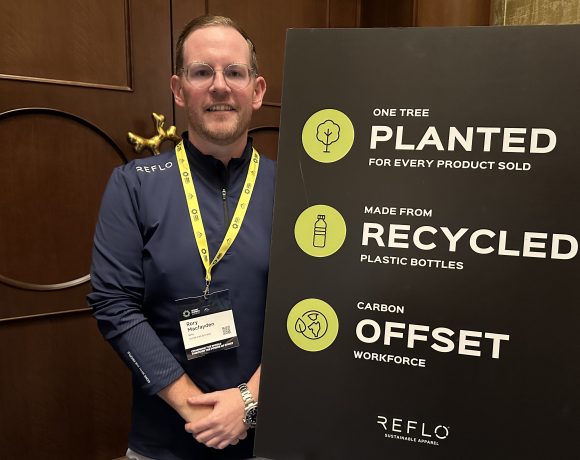McLaren Racing is on track to intensify its sustainability credentials

With growth plans for the Middle East
McLaren Racing was an Impact Partner at the inaugural Sport Impact Summit in Dubai on December 4, 2024, highlighting its shared commitment to using sport as a platform for social and environmental good.
McLaren Racing’s commitment to sustainability is not just about reducing its environmental impact. It also champions diversity, equity, and inclusion within the sport. This inclusive approach and its sustainability initiatives have positioned McLaren as a leader in the motorsport industry and instilled a sense of pride and support among its fans and partners.
McLaren Racing’s sustainability strategy is about its operations and building a more sustainable, diverse, and inclusive motorsport community globally. It leverages technology and innovation, alongside its global partnerships, to drive positive societal and climate action. At the Sport Impact Summit, McLaren shared insights from its sustainability journey and collaborated with stakeholders to explore new ways to create meaningful change.
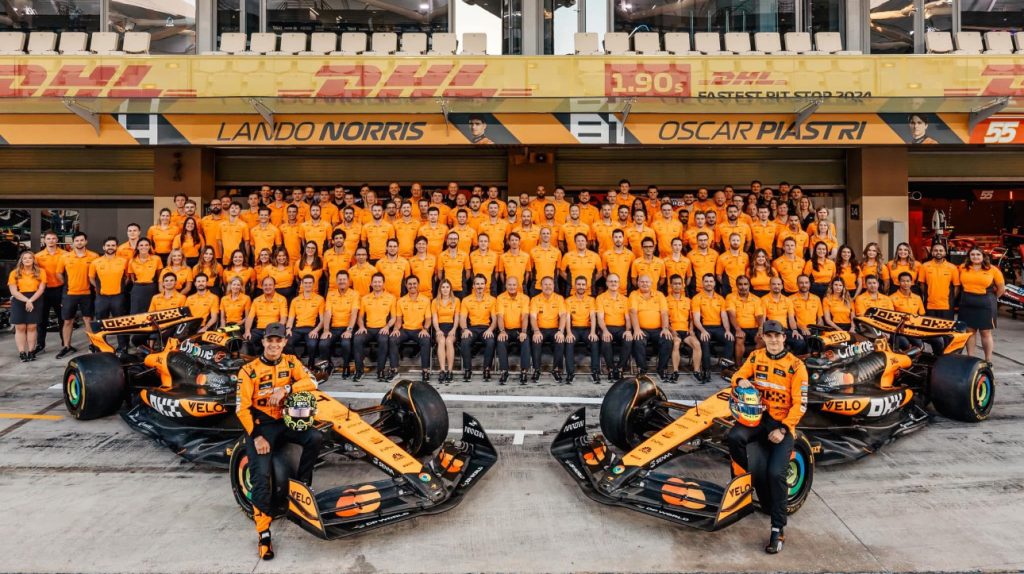
Despite its significant successes, including 20 Formula 1 world championships, victories at the Indianapolis 500 and Le Mans 24 Hours, McLaren Racing remains resolute in its commitment to sustainability. Competing across six racing series, the team aims to achieve net-zero emissions by 2040, a goal that inspires optimism for the future.
Middle East News 247 sat down with Kim Wilson, McLaren Racing’s Director of Sustainability, for an exclusive interview on the sidelines of the 2024 Sport Impact Summit.
The interview has been edited for clarity and brevity:
McLaren Racing has always been synonymous with performance and innovation. Can you share some of the latest developments at McLaren Racing, particularly in sustainability?
Absolutely. My current role at McLaren Racing involves overseeing sustainability across all our racing divisions. Over the past three years, we have made sustainability one of our five core strategic business priorities. This commitment is vital for us, as it ensures we meet not only the expectations of our fans and partners but also the broader societal and environmental obligations we face.
We have integrated this ethos into our operations, akin to any major corporation striving to reduce its ecological footprint and create positive societal impacts. We are proud to be pioneers in this field, setting an example for other sports teams and industries.
We have set ambitious targets to achieve net-zero emissions and implement a circular economy within our operations. A circular economy is an economic system aimed at eliminating waste and the continual use of resources. In our context, this means we strive to minimise our environmental impact by reusing and recycling materials. These programmes have been the focal point of our work, and we have taken a rigorous, data-driven approach, much like we do when analysing performance on the track.
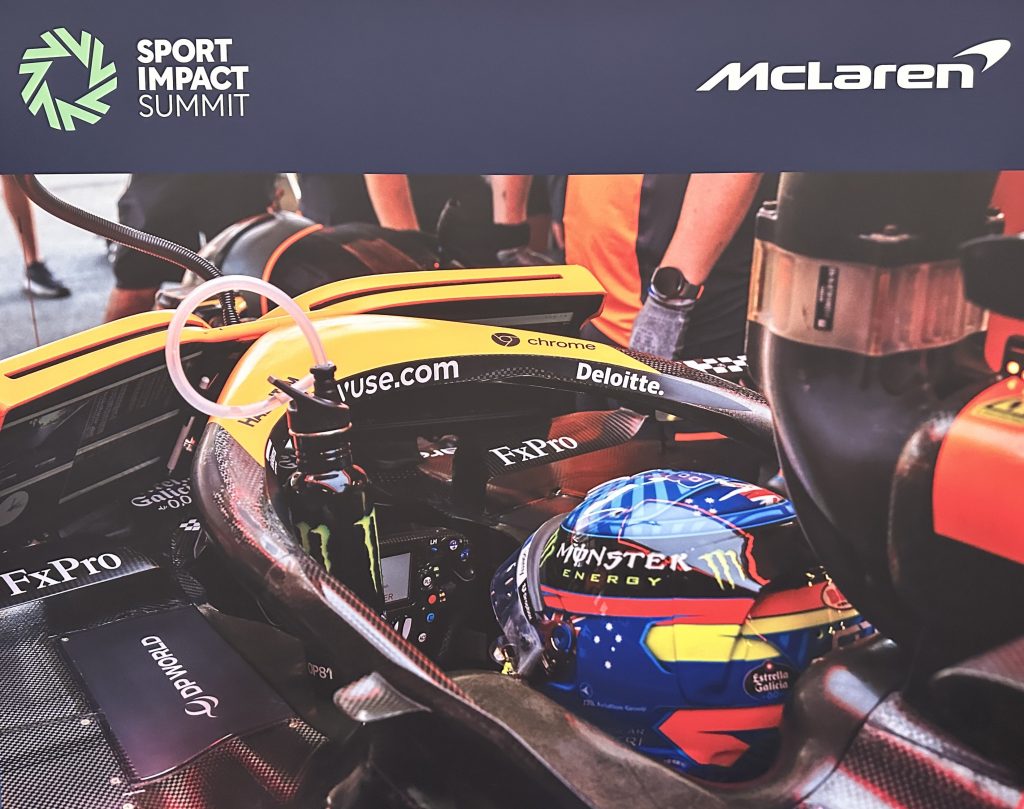
Sustainability is undoubtedly a buzzword, yet many wonder why it is essential for all businesses, including McLaren Racing. What do you think?
Sustainability has transcended being just a trend; it is an imperative for businesses across all industries. When we speak of sustainability, we focus on both the social and environmental aspects, both positive and negative. At McLaren Racing, we have four main pillars that guide our efforts: net-zero emissions, a circular economy, diversity, equity, and inclusion, as well as health and well-being. These pillars represent a key aspect of our sustainability strategy and guide our actions in this crucial area.
Our extraordinary platforms to influence change, especially as a sports team, set us apart. It is not just about what happens within the confines of our control but also about how we impact the broader motorsport community. We can lead by example, showcasing to our fans what sustainability can look like in action.
One of the projects we are particularly proud of is our collaboration with some of the biggest global brands to drive meaningful change. For instance, we are creating a matrix to measure the circularity of our vehicles. This will ultimately help us refine our operations and ensure we remain at the forefront of this crucial movement.
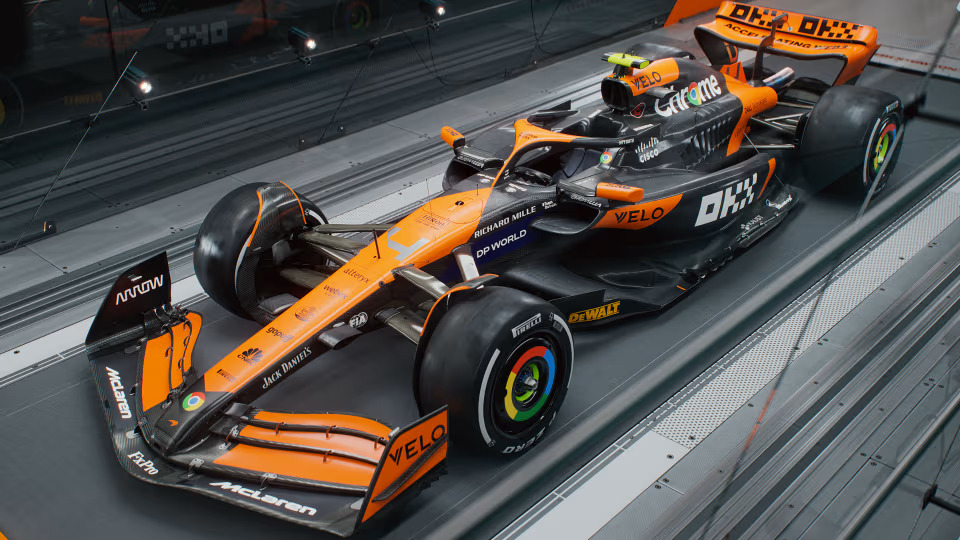
McLaren Racing is a truly global entity, but you also have a significant presence in the Middle East. What can you tell us about your engagement with the region?
The Middle East, particularly Neom [Saudi Arabia], is a hotbed of innovation and sustainability. McLaren Racing’s collaboration with Neom, whose electric racing team is working on cutting-edge technology, is a testament to this. This partnership is about advancing clean technologies and inspiring the next generation of talent in the region. Our collaboration with Neom is a significant step in our efforts to promote sustainability in the Middle East and encourage others to follow suit.
We are also working closely with Neom to inspire the next generation of talent. We have launched graduate programmes that give young professionals invaluable exposure to the world of Formula 1. This collaborative spirit is crucial in making sustainability an integral part of regional business operations.
You mentioned Neom, but do you foresee any partnerships with government entities in the UAE or other Arabian Gulf nations regarding sustainability?
While we primarily work with private sector partners, our efforts certainly align with the ambitions of various Middle Eastern governments. We are seeing a strong focus on technology transfer and sustainable development, which bodes well for future collaborations.
We continually learn from our work and are open to sharing our knowledge with governments and businesses that are equally committed to sustainable growth.
Turning to the challenges McLaren Racing faces in sustainability, what is your most significant obstacle?
Racing is highly regulated, sometimes creating tensions between performance and sustainability. For instance, while we can quickly implement energy-efficient measures such as switching to LED lighting or biofuels for our fleet, other factors are more complex to influence due to the sport’s strict regulations.
One of the more complex challenges has been the cost cap in Formula 1. This cap means that any expenditure we incur must be accounted for unless specifically exempted. There were moments when we had to choose between investing in on-track performance or funding sustainability projects.
However, through advocacy and collaboration, we have worked with the FIA and other teams to adjust the regulations, allowing us to make sustainability investments without compromising competitive performance.
The next hurdle we face is adapting the sport’s technical regulations better to facilitate the use of sustainable materials and processes. For example, Formula 1 has made strides in integrating sustainable fuels, but much work still needs to be done. As constructors, we examine the materials used in the car’s design to reduce waste and embrace more sustainable alternatives.
Can you elaborate on how McLaren Racing pushes the envelope in material innovation for the sport?
Indeed, we have always prided ourselves on being pioneers in the motorsport world, and material innovation is an area where we are making significant strides. For example, we were the first to use carbon fibre in the car’s construction. But now, we are shifting towards recycled carbon fibre, which is far more sustainable.
Through partnerships, such as one with V Carbon, we have sourced recycled carbon fibre that is 90% less carbon-intensive than virgin fibre. This material performs at a comparable level to traditional carbon fibre, and we have already begun incorporating it into non-essential car components. If our trials prove successful, we aim to expand its use across more critical car parts.
The implications of this research extend beyond motorsports; if we can successfully integrate recycled carbon fibre into Formula 1 cars, why not other industries? The possibilities are vast in sailing, tennis, or even road vehicles. We aim to demonstrate that sustainable innovation in Formula 1 can serve as a model for the wider world, inspiring change and hope for a more sustainable future.
The Middle East is increasingly becoming a hub for motorsport, with a young and growing fanbase. How does McLaren view this region in terms of its appeal to both sustainability and broader commercial interests?
The Middle East is undoubtedly a vital region for McLaren, not just for sustainability but also from a commercial perspective. The region is thriving with technological advancements, and we must establish a presence there to engage with fans and tap into the growing opportunities.
We are not just focusing on the races we attend in the region but also on forging deeper connections with the local industry, forging partnerships with regional brands, and contributing to the area’s development in technology, innovation, and sustainability.
How do you plan to raise awareness for McLaren Racing’s sustainability initiatives within the broader motoring community and the private sector in the Middle East?
Participating in events like the Sport Impact Summit is one way we can engage directly with industry peers and other stakeholders. This platform enables us to exchange ideas, collaborate with like-minded organisations, and amplify our sustainability message.
We also leverage our partners’ influence, such as Neom and Deloitte, to reach key regional players. But perhaps most importantly, we use our status as a global motorsport brand to inspire and drive positive change in the broader community.
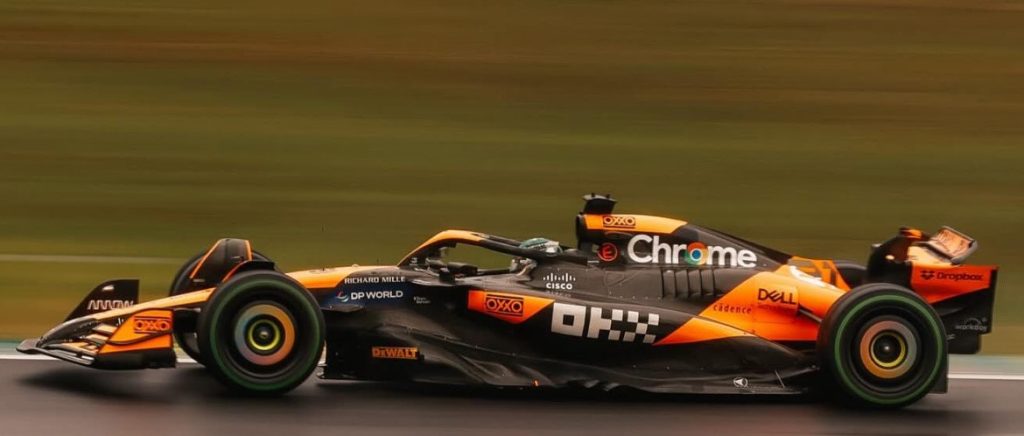
Where do you see McLaren’s sustainability efforts in the next five to ten years?
Our focus remains on advancing circularity. We are committed to refining our understanding of where we can make the most significant impact and developing strategies to move the needle in those areas. As a team, we are agile, so if our current approach needs to pivot, we are ready to do so.
Additionally, we are investing in sustainable aviation fuel (SAF) as a key component of decarbonising our logistics. But our commitment extends beyond just reducing emissions. We are working with global partners to define new circular materials and carbon accounting standards. This is an exciting time for us as we strive to set the standard for sustainability not only within Formula 1 but in the broader industries where these innovations can be applied.
What are McLaren’s plans for future collaborations in the Middle East, particularly with governments or private companies?
Our focus is ongoing partnerships, particularly with companies like Neom, as we promote technological innovation and sustainability.
We are also open to future collaborations with regional governments, especially as the push for sustainability intensifies. Our work is rooted in collaboration and shared knowledge, and we look forward to exploring further opportunities as the region continues to evolve.
What initiatives do you have planned for 2025 and beyond?
Our plans for 2025 revolve around accelerating our work on circularity. We aim to enhance our data-gathering to identify areas of opportunity, push the boundaries of recycled materials, and focus on sustainable aviation fuel to decarbonise our logistics.
Moreover, we are expanding our Climate Contribution programme, which includes partnerships with organisations like the Great Barrier Reef Foundation. We are working to scale carbon credit production and contribute to ecosystem restoration. Our engineers are also collaborating on innovative projects like developing automated systems for coral planting, which could revolutionise efforts to restore marine ecosystems on a global scale.
Ultimately, we aim to show that motorsport can be exciting, forward-thinking, and sustainable, and we are determined to lead the charge.
Hero image: Kim Wilson, McLaren Racing’s Director of Sustainability, at Sport Impact Summit 2024 in Dubai on December 4, 2024. Credit: Arnold Pinto


